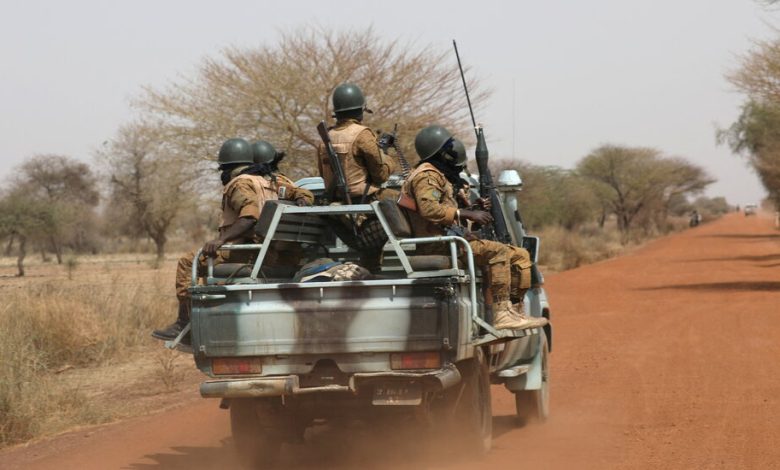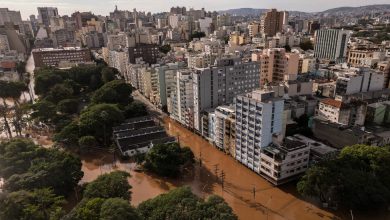Armed Insurgents Kidnap 50 Women in Burkina Faso

Armed assailants kidnapped about 50 women in northern Burkina Faso last week, the government said on Monday, the latest security incident in the landlocked West African country, which has been battling a jihadist insurgency since 2015.
The women were abducted on Jan. 12 and Jan. 13 as they were foraging for fruit outside two villages near the city of Arbinda, the regional governor, Lt. Col. Rodolphe Sorgho, said in a statement.
No group had claimed responsibility as of Monday, but extremist groups linked to Al Qaeda and the Islamic State have for years carried out attacks and kidnappings in Burkina Faso, killing tens of thousands and displacing nearly two million people — 10 percent of the country’s population.
Until recently, however, women could move more easily in rural areas than men, often walking for days from displacement camps back to the villages they fled to check on their crops and houses.
Burkina Faso’s leader, Captain Ibrahim Traoré, seized power in a coup in September and made the recovery of territories lost to armed groups his priority. But the government controls only about half of the country, according to estimates by research groups and regional leaders.
Aziz Diallo, the mayor of Dori, a locality in northern Burkina Faso, said in a telephone interview on Monday that clashes between local branches of Al Qaeda and the Islamic State were frequent in the area, but that it was too early to tell who had abducted the women.
Since the extremist groups have essentially blockaded the country’s north, said the mayor, economic activities were at a standstill and residents — primarily women — have been forced to venture farther out to get supplies.
“Their lives are exposed,” he said.
The local branch of the Islamic State has kidnapped women in Nigeria and other countries, said Fahiraman Rodrigue Koné, a senior researcher with the Institute for Security Studies, based in Mali. The most notorious kidnappings happened in Nigeria, where in 2014, militants with the group Boko Haram stormed a girls’ school in the village of Chibok.
But kidnappings have been rare in Burkina Faso, Mr. Koné said.
“It could be a strategy of blackmailing, or an attempt to get a ransom,” Mr. Koné said.
Arbinda and the broader Sahel region of Burkina Faso have faced dwindling food supplies because of multiple blockades imposed by jihadist groups since last year. About 3.5 million people are projected to face severe food insecurity in the country this year, according to the World Food Program. In Djibo, a city 55 miles west of Arbinda, cases of diarrhea have spiked because of scarce access to drinking water caused by the blockade, the organization has said.
Faced with hunger, the women in Arbinda gathered carts to pick up leaves and wild fruit in the bush on Jan. 12, residents told news outlets. A few survivors managed to escape and recount what happened, but another group was kidnapped the following day in a nearby village, they said.
Nearly one million people live in blockaded areas in the country’s north and east, according to the United Nations.
Through military convoys, the government and humanitarian groups have tried to get supplies to the isolated localities, but they have faced attacks, too. In August, 2021, 80 people, including 65 civilians, were killed in an attack on a convoy taking them to Arbinda. Dozens of civilians were killed in a similar operation in the region last September.
The authorities have recruited 3,000 soldiers, and, as part of a program to involve civilians in the defense of the country, 50,000 volunteers who will undergo two weeks of military training. But the program, Volunteers for the Defense of the Homeland, has raised concerns among analysts that ethnic violence and human rights abuses will increase if civilians are not properly trained.
In late December, 28 civilians were killed in northwestern Burkina Faso, according to local officials, who didn’t provide details on the alleged perpetrators. At least two local rights organizations have accused members of the civilian auxiliary force of carrying out thekillings.
Mr. Koné, the analyst, said that as the military has increased offensives against extremist groups, the first victims would likely be civilian populations, which are accused of collaborating with one side or another.
“Burkina Faso faces a humanitarian and security crisis, and as we’re seeing in the country’s north, increasingly a food security crisis, too.”




